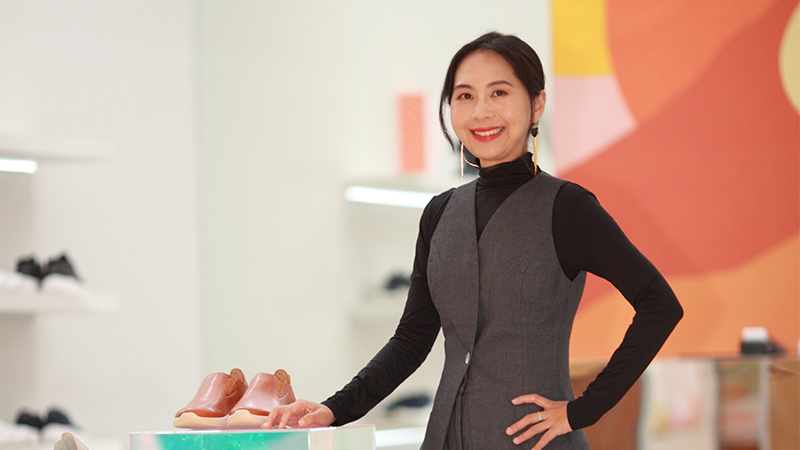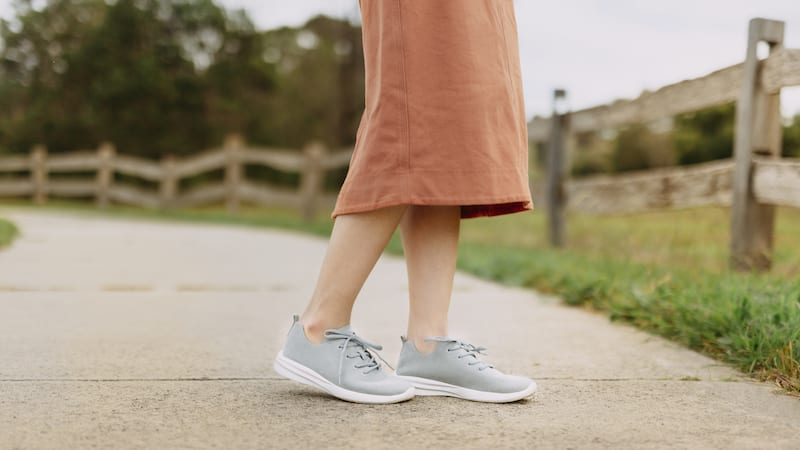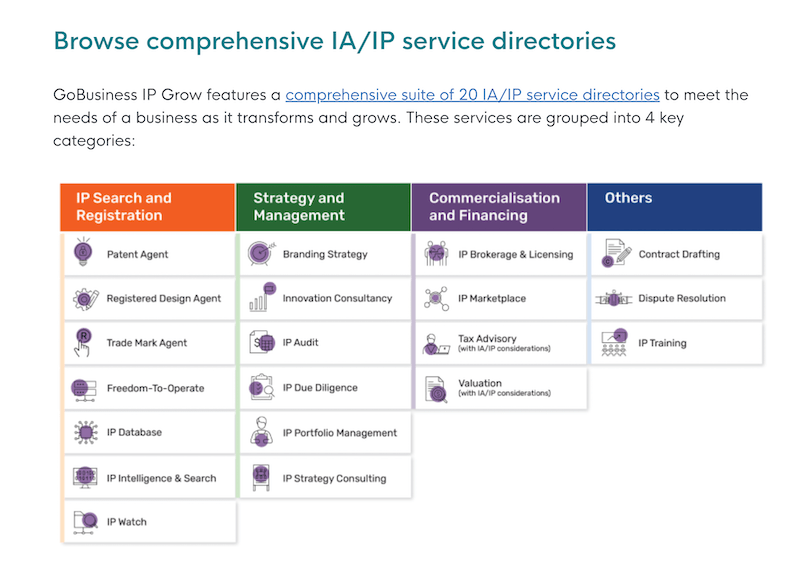Sunnystep’s key to success: Securing its IP

Five years ago, having just given birth to her first child, Mao Ting attended a private pilates class hoping to get back into shape. However, the pilates instructor, being unfamiliar with postpartum bodies, pushed Ting beyond her limits, resulting in a traumatic spine injury from a strained back.
The ordeal left Ting with debilitating pain that relegated her to lying down for extended periods. Apart from being unable to sit without experiencing excruciating pain and having to consume her meals standing up, Ting suffered from insomnia due to the pain and was even unable to carry her newborn baby. “My body could not tolerate even the slightest bit of stress, and I couldn’t wear any of the shoes I owned at that time because they could not provide the right support,” said Ting.
The experience prompted Ting to start her quest in search of comfortable, supportive footwear, to no avail. Taking matters into her own hands, Ting began experimenting with making her own orthotic shoes.
Fueled with the determination to help and educate others on orthotic health problems, Ting’s passion and determination eventually led to her startup Sunnystep, a modern orthotic footwear brand that has grown into a million-dollar business, with over 10 outlets island-wide.
Overcoming regulatory hurdles
Ting’s pursuit of recovery was a long and challenging path, during which she sought help from numerous physiotherapists, orthopaedic doctors and sports trainers. Through her healing process, she began to gain extensive knowledge about muscles, joints and mobility, and the importance of adding support to the sole.
Familiarising herself with the anatomy of the shoe, Ting embarked on a vigorous process of research and development, experimenting with many different formulas on her mission to create comfortable and attractive orthotic shoes.
But Ting’s initial journey of starting her business was not a walk in the park. As a first-time business owner, Ting lacked guidance on business structures and regulations. As Sunnystep expanded rapidly, she also had to quickly transition from operating solo to managing a team.
“I started my business with a good product, but zero knowledge of how to run a business,” shared Ting. “I had no idea how to build my team’s organisational structure or what social or legal responsibilities my startup would have.”
Amid the hustle to get her business off the ground, Ting experienced an alarming moment when she accidentally missed her business’s first tax return filing due to neglecting a couple of letters in the mail.
“It was really scary because I didn’t know how serious the consequences would be and how it would affect my business,” recalled Ting.
Thankfully, she found out about the error in time and was able to declare her tax filing before it was too late. Looking back on the experience, Ting reflected that she could have been well-informed of the regulatory requirements involved with running a business.
“We really could have benefited from more educational resources. If a one-stop government platform like GoBusiness with consolidated resources had existed back then, I could have conveniently gotten a crash course on business admin and regulations.”
Putting themselves in the customer’s shoes
Apart from administrative and regulatory challenges, Ting also embarked on a rigorous research and development (R&D) process. As a former data scientist, Ting took an analytic approach to the design process, working with a small factory in China to create prototypes on a small scale, and channelling her ideas, knowledge and customer insights in order to solve the problems she personally faced in orthotic health and comfort.

A major portion of Sunnystep’s profits were re-channelled into R&D and the result is a modern spin on orthotic shoes which incorporate traditional foot reflexology techniques into contemporary footwear. Designed to cater to Asian foot shapes, Sunnystep’s blister-free shoes are also flatter and wider, promoting proper posture and gait to prevent long-term foot, ankle, and hip problems.
Unlike most insoles currently in the market, which are made of memory foam, the Sunnystep team developed its proprietary insoles, which are constructed from a PU material that is a lot more stable and resistant to sinking over time. This ensured that their shoes remained lightweight and well-cushioned so that they did not grind against the bone of the user’s feet while being firm enough to provide sufficient stable arch support.
Throughout their four years in the business, the Sunnystep team has maintained a design-thinking process in experimenting for every batch of production, making small improvements and adding features over time based on customer feedback. Recent revisions included added acupressure massage points that help elevate muscle strength and relieve muscle tension throughout the user’s daily activities.
“Most shoes out there are marketed to guarantee comfort from the moment you slip them on. But true comfort is not about how your feet feel at the first step, but from the beginning to the end of your journey,” added Ting.
While Sunnystep is known for its lightweight blister-free shoes, the team faced a challenge in making their shoes durable, as lightweight materials can be worn down quickly, given their lower density. The team had to experiment with the right balance of rubber content and different injection methods—a process that required them to invest in a whole new set of equipment.
“We knew investing in new equipment was going to be expensive, but we want to make sure that our customers feel comfortable walking 10,000 steps or even after a long day of work. That is what compels our team to keep researching and growing, propelling our product to the next level,” said Ting.
Securing Sunnystep’s intellectual property (IP)
Despite her inexperience, Ting was well aware that Sunnystep’s competitive edge lay in their product innovation, and that protecting their designs is vital to the business. “Here in Singapore, the retail sector is very competitive. Apart from up-and-coming local footwear brands, there are many globally renowned brands coming into the Singapore market. So it is very important to secure your IP, especially for small businesses and start-ups.” From their insoles and outsoles to the exterior design of their shoes, these are all intellectual property that the Sunnystep team needs to safeguard with patents. However, as a first-time business owner, Ting had limited knowledge on the subject.
While conducting research on IP protection in Singapore, the Sunnystep team chanced upon GoBusiness IP Grow, an online marketplace for intangible assets and intellectual property (IA/IP) services. The one-stop platform offers free tools and resources to support enterprises in leveraging IA/IP for business growth and success.

“As a first-time business owner, I had zero working knowledge on how to run a business. When the subject of securing our patents came up, the resources on GoBusiness IP Grow were useful, because they introduced us to the overall landscape of how people navigate IP.”
Using the GoBusiness e-Adviser for IP Service, Ting and her team could receive immediate and personalised advice on the different IP services they required, such as a patent agent to assist them with the process of filing patents for their designs.
The GoBusiness e-Adviser for IP Service Provider also recommended a list of IP service providers tailored to Sunnystep’s patent needs. The list included key information such as hourly rates, the experience level, the number of completed projects, and the firm’s expertise, enabling Ting’s team to efficiently compare and review their options. Through the “get in touch” form on GoBusiness IP Grow, Ting’s team could directly reach out to their preferred providers that best matched their budget and needs.
“Having a comprehensive list of IP service providers, along with detailed information on the expertise of each firm, was very useful in helping our team make a quick decision,” said Ting.
As the brand enters its fourth year in the business and continues to expand its range of products through R&D, Ting’s team is also looking at ways to offset the costs of IP. The Sunnystep team is exploring different grants and government support with the help of the available resources on GoBusiness.
Ting emphasised the importance for entrepreneurs to maximise the resources available to support their business growth. “Many business owners that have just started out may not think about IP at all until it’s too late to protect their ideas from other competitors in the market. It may seem costly at first, but there are many resources out there to help start-ups, and securing your IP is definitely a worthwhile investment into ensuring the longevity of your business,” shared Ting.
This article is accurate as at 18 Dec 2023

